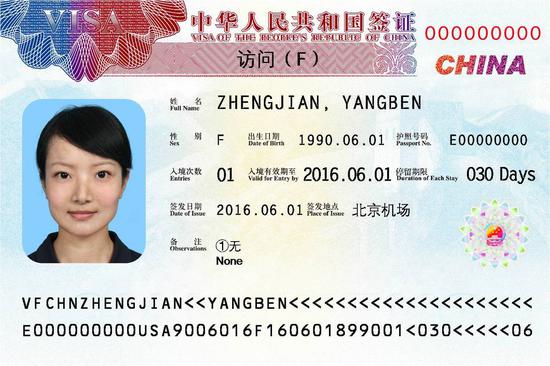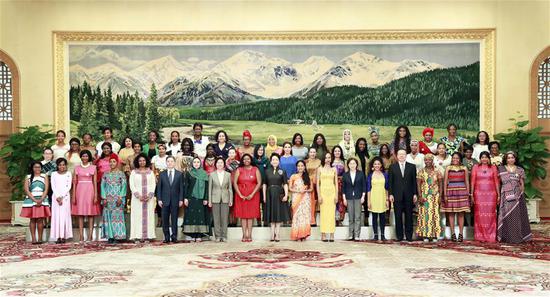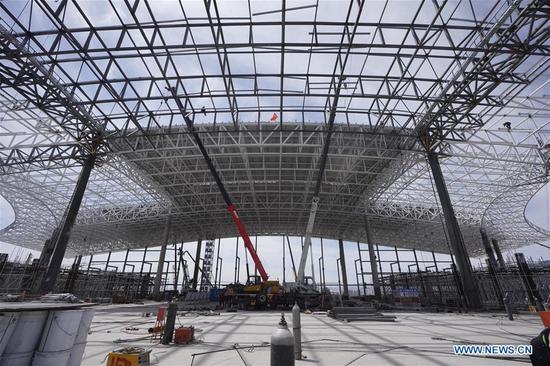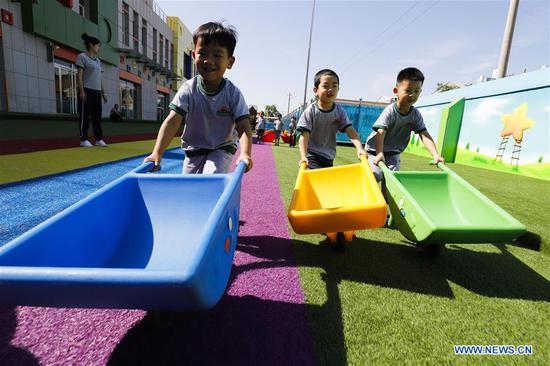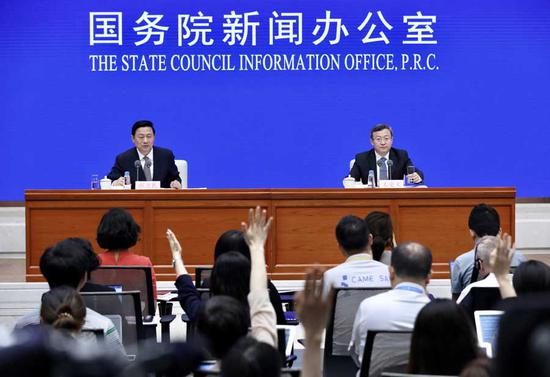
The State Council Information Office on Sunday issued a white paper to provide a comprehensive picture of the China-US economic and trade consultations. (Photo by Zhu Xingxin/chinadaily.com.cn)
Beijing unveils Washington's demands that led to failure of resolving remaining rifts
The United States should take responsibility for the setback in economic and trade consultations with China, a government white paper said, warning that "red lines" cannot be crossed.
The U.S. government has backtracked on its commitments three times in the trade negotiations with China and should bear sole responsibility for the stalled progress, the paper said on Sunday.
The white paper, "China's Position on the China-U.S. Economic and Trade Consultations", was released by the State Council Information Office. It came amid ongoing tension between the world's two largest economies.
Speaking at a news conference on Sunday, Vice-Minister of Commerce Wang Shouwen said China is willing to work together with the U.S. to find solutions concerning differences on the economic and trade fronts, and to reach a mutually beneficial and win-win agreement.
"However, cooperation has to be based on principle and there are bottom lines in consultations," Wang said. "China will not compromise on major issues of principle."
The U.S. government has persisted with certain demands in its negotiations with China, Wang said. For example, it insisted on including "mandatory requirements" concerning China's sovereign affairs in the agreement, which only served to delay the talks' progress, he said.
The white paper said, "red lines" cannot be crossed in bilateral negotiations, the right to development cannot be sacrificed, and sovereignty cannot be undermined.
China and the U.S. have been engaged in a trade dispute for several months. The tension has been escalating since they reached a deadlock over economic and trade negotiations.
The consultations, launched in early February 2018, have come a long way with the two sides "agreeing on most parts of the deal," the paper said. "But the consultations have not been free of setbacks, each of them being the result of a U.S. breach of consensus and commitments as well as backtracking."
The paper listed, in chronological order, three times when the U.S. backtracked on a deal.
The first time was when the U.S. government announced an additional tariff of 25 percent on $50 billion of Chinese exports, despite the negotiators having reached preliminary consensus on expanding China's imports of agricultural and energy products from the U.S..
The U.S. government "kept changing its demands" in the previous more than 10 rounds of negotiations, the paper said.
However, some U.S. officials argued that China backtracked on nearly all aspects of the trade deal, according to earlier reports from foreign media.
Wang said the U.S. accusations of China reneging on the deal are groundless. When consultations are in progress, it is not uncommon for both sides to propose adjustments to the text of an agreement, Wang said. "Nothing is agreed upon until everything is agreed upon," he said.
In response to the latest U.S. tariff move, China raised additional tariffs to a maximum 25 percent on part of $60 billion worth of U.S. products, effective June 1. China1has had to take forceful measures to defend the interests of the nation and its people, Wang said.
He said details about the list of "unreliable entities"-foreign parties that harm the interests of Chinese companies-will be announced soon. The list aims to ensure a stable, fair and sustainable trade order between companies, and there's no need to over-interpret it, he said.
Dong Yan, director of the international trade office at the Institute of World Economics and Politics of the Chinese Academy of Social Sciences, said a country's sovereignty and dignity must be respected in bilateral consultations. It is necessary to ensure that any agreement can be balanced, which can satisfy the needs of both sides, Dong said.
Jock O'Connell, international trade adviser for independent research and consulting company Beacon Economics, said too many of the U.S. administration's demands go to the heart of Chinese economic policy and even touch on the issue of national sovereignty.










